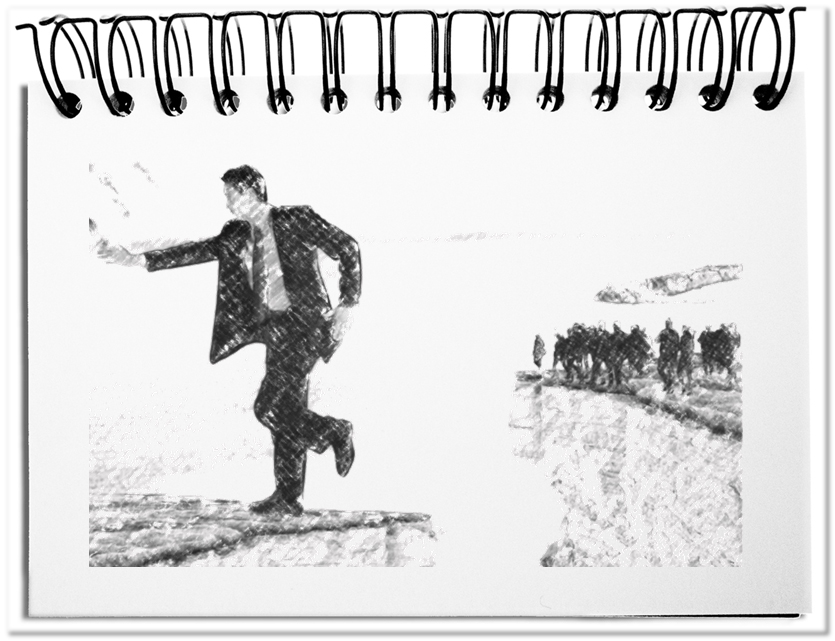Some managers hamper progress in the enterprise with their avalanche-like excessive desire for action, when they do not pay attention to the feedback of their employees. They always run with new ideas ahead of the staff without completing anything. Half-done initiatives and a large number of demoralized employees remain. The successors have no other choice than to repair the damage – again and again. And this happens although the leaders should have noticed that they are only soloists without impact, if they do not have the support of the staff.
Especially in the areas of service and administration, where no physical products are created, the commitment of the persons employed is the basis for good performances. Results that are difficult to measure, like the relationship with the customers, the appropriate application of resources and the consistent external representation of the corporate values, are critical, if a manager does not consider the ideas of the staff. How can you avoid losing your employees during your day-to-day work?
- Listening
Those bosses, who practice active listening within respective meetings (e.g. town halls, round tables), take thereby the foot off the brake. In return they receive the insights and the opinions of the employees, who eventually improve the results and the balance sheet of the boss. - Agreeing upon obligation AND freestyle
Goals create the framework, in which the employees act. In general the targets describe, what the employees have to do. Additionally the goals should also be fixed. It enables the employees to provide additional personal contributions. That way dedication becomes again worthwhile. Beyond that the superiors get additional possible use from the extra abilities of the employees. - Service level Agreements (SLAs)
With external service providers it has paid off to agree upon the deliverables, the response time and the speed with SLAs. The description of the required quality prevents a halfhearted target fulfillment. The thresholds are specified for the particular case to be processed and can be subsequently evaluated for defined periods. In such a way the service level becomes a seizable component of the goal agreement. - The open checklist
Checklists examine the fulfillment of the essential aspects of a task. The task fulfillment becomes as good as the prepared checklist. With the classical checklist you get only a target fulfillment.
Item 1? Checked off.
Item 2? Checked off.
Item 3? Checked off.
Patient dead.With an open checklist that does not only contain of Yes/No questions, but also asks open key questions (like who, where, when, how), the work to rule is prevented.
Which deliverables were accomplished?
What characterizes the customer?
What did we learn?
What should we avoid?The customers will notice the difference immediately. - Sharing responsibility
The strongest weapon against inner resignation is the joint definition of the basis of daily work. The employees specify the requirements and goals for the respective period in a joint discussion together with the managers. Self-defined and comprehensible goals are pursued more active by the employees and supply the bosses with a better overview, than abstract, hardly seizable agreements.
Bottom line: Superiors, who do not integrate their employees into their leadership, will have difficulties in the future. They lose the people through
- their inner resignation,
- the work to rule and
- the target fulfillment.
Those leaders harm themselves. In the mid-term nobody wants to work for them. The lonely leader, who believes that he knows and can do everything and does not pay attention to the feedback of the employees, becomes over time nothing else but a soloist without impact.

